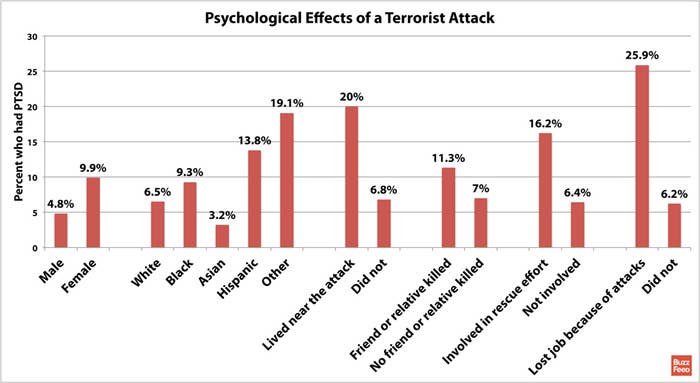
Terrorist attacks can have lasting psychological effects on those who experience them, including post-traumatic stress disorder. But not everyone is affected equally — after 9/11, women and people of color were disproportionately likely to get PTSD.
Epidemiologist Sandro Galea and his coauthors surveyed about a thousand New Yorkers a month after 9/11. They found that women were close to twice as likely as men to have PTSD, and people who listed their race as Hispanic were more than twice as likely to have the condition as people who identified as white. Being Hispanic was actually a bigger risk factor for PTSD than losing a friend or a loved one. And all non-white groups, with the exception of Asian-Americans, were at higher risk than whites. Most likely to get PTSD were people who listed their race as "other."
The trigger for this stress might not just be about the act of terror itself. Terrorist attacks in the West often lead people to rush to blame immigrants, Muslims, or anyone they think looks like a "terrorist." A 2005 study found that Muslims were more likely to be distressed after that year's bombing in London than were people of other religions — and anecdotally, Muslim Americans have written about the stigma they face after terrorist attacks, even when no one knows the identity of the terrorist. Galea and his coauthors didn't ask about religion, but any person of color may face some of this stigma, as xenophobes rush to blame anyone who looks different. And anyone who has to struggle with both the aftermath of an attack and the feeling that their neighbors are suddenly suspicious of them may well be more likely to get PTSD.
